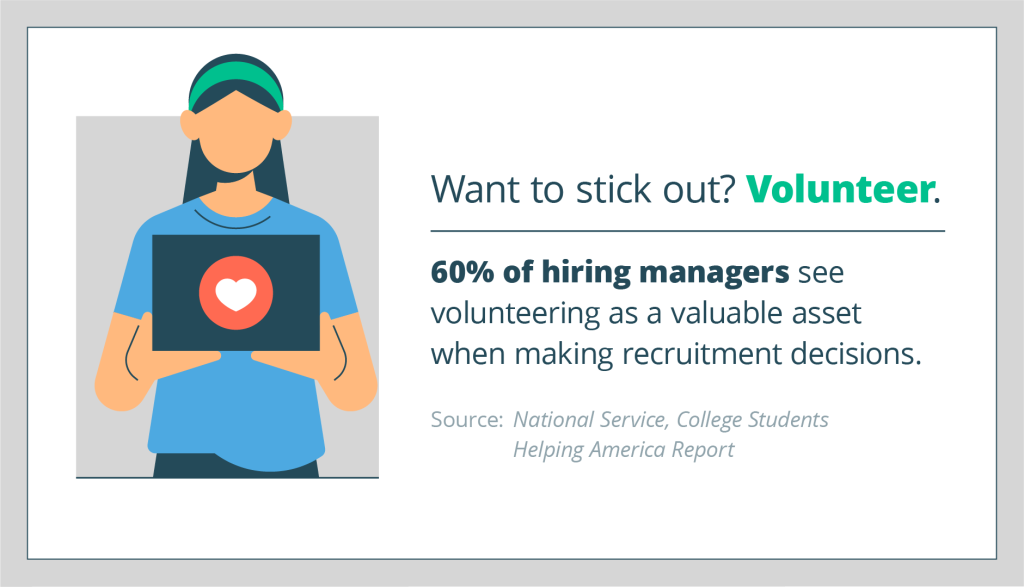By: Hana Rehman

Upon graduation, today’s students are facing a unique problem: the job market is full of positions designated as “entry-level,” but many of those positions actually require several years’ worth of experience. This catch-22 is a frustrating obstacle for new graduates. After cultivating so many important skills throughout their academic studies, they now find themselves stuck when applying to jobs.
To add to the problem, the pandemic has undoubtedly shaken up the job market. In a survey by the Collegiate Employment Research Institute at Michigan State University, 48% of employers expected that full recovery of the college labor market will take two to three years, and 15% felt it will take even longer.
That’s why it’s more important than ever to help students navigate the intimidating landscape of job hunting around graduation time. So, how can academic and professional staff help when preparing students for their job search? Here are several actionable tips and pieces of advice to share with your students.
Create a Presentation for Your Dream Company.
Encourage students to go the extra mile when they find a company they really connect with. Creating a presentation or pitch deck for that company could be something students either a)don’t know they can do or b) simply have never thought about, but it can be a great way to get positive attention from recruiters.
By conducting research, students can create a competitive analysis or simply suggest areas of improvement for a specific department in their custom presentation. They can submit the presentation along with their application materials. Remind students, however, that this extra work is probably worth saving for just a handful of companies they really care about.
Network Online.
Unfortunately, face-to-face networking isn’t very feasible right now, so students will need to make even stronger use of social platforms. However, filling out online applications may not be enough to land those highly competitive jobs.
Thankfully, there are many online resources for students to tap into. It’s worth going over LinkedIn How-To’s and teaching students to market themselves professionally on social media. When they begin their job search, encourage them to reach out to recruiters with personalized messages online.
Use Digital Resources to Learn the Ins and Outs of the Industry.
Students with a lack of industry experience may find it difficult to come across as well-versed and knowledgeable during interviews. However, you can share online resources to encourage them to learn about their chosen field. Here are some resources to share:
These resources may help students soak up some of the knowledge they need to appear more confident when filling out those applications and speaking to hiring managers.
- TED Talks relating to the specific industry the student is interested in
- Podcasts by industry experts
- Blogs written by thought leaders in the field
- News sites with the latest industry updates
Volunteer or Intern Virtually. In their College Students Helping America Report, the Corporation for National & Community Service found that 60% of hiring managers see volunteering as a valuable asset when making hiring decisions. It’s safe to say that volunteering won’t hurt on a resume. Similarly, interning in a specific industry can help students gain some of the experience they need for an entry-level position.
With many in-person volunteer and intern opportunities on hold during the pandemic, students may not know that there are still great virtual opportunities out there. For example, they can tutor younger students online or assist a nonprofit organization with marketing and research. Many companies have also begun to offer remote internships so students can work from home.
Show off Academic Work in a Portfolio.
Even with limited work experience, anyone can benefit from creating an online portfolio or website. A polished portfolio will show recruiters that a student takes initiative and is excited to put their skills to use at their new job.
Students can populate their portfolios with college projects and writing samples. Assignments such as graphic design or marketing work for a fake brand are perfect for displaying on portfolio sites. An online portfolio is also a great way for students to exhibit their transferable skills. For example, displaying an impressive analytical essay written for a class demonstrates critical thinking and communication skills.
It may be worth dedicating a class to creating work portfolios using Wix or another free website builder.
Develop New Skills with Online Courses.
Taking online courses, such as those on LinkedIn Learning or other platforms, can help students gain even more industry knowledge and teach them technical skills, such as specific software, needed to apply to some entry-level jobs.
2020 was a tough year for new graduates, and 2021 will continue to present a challenge for those looking to launch their careers. Academic staff can help support their students in this difficult time by providing these resources and pieces of advice for self-advocating and standing out on applications. For more tips, check out JobHero.
Hana Rehman is a content creator who develops helpful and compelling stories. Her passion for digital marketing and creative writing has led her to cover unique topics ranging from business to lifestyle.

